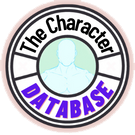Corruption: Difference between revisions
(Created page with "'''Corruption''' is the ability to "infect" someone or something with one's power, transforming the affected person or object into a different being or state of being than it was before. This ability can resemble Mind Manipulation (and its facets) or Possession, in that the target becomes what the user desires, but typically, once infected, the "corruptor" does not need to do anything fu...") |
m (Protected "Corruption" ([Edit=Allow only administrators] (indefinite) [Move=Allow only administrators] (indefinite))) |
(No difference)
| |
Latest revision as of 10:35, 30 July 2024
Corruption is the ability to "infect" someone or something with one's power, transforming the affected person or object into a different being or state of being than it was before. This ability can resemble Mind Manipulation (and its facets) or Possession, in that the target becomes what the user desires, but typically, once infected, the "corruptor" does not need to do anything further for the "corruptee" to become corrupted.
Corruption can occur through various methods such as Disease Manipulation, Biological Manipulation, Absorption, and more. However, it can also be performed in a manner that is only classified as corruption. Despite the negative connotation of "corruption," it is possible, though rare, for this power to be used to improve someone.
Types:
- Type 1 – Physical Corruption: This involves corrupting the target through physical contact. Users typically need to transfer a part of themselves or the corrupting material into the target. This type of corruption acts like a disease, spreading throughout the victim. It can affect any part of the target, including their body or mind, but usually leaves the soul untouched.
- Type 2 – Non-Physical Corruption: This involves corrupting others through non-physical powers. The user's influence can infect the target from a distance, without the need for physical contact. This method can affect non-physical aspects of the target, potentially having a more profound impact.
Limitations:
- Strong willpower may be sufficient to resist the corruption.
- It may take time for the target to become fully corrupted, giving them a chance to find a way to counter it.
- Corruption may enhance the target's statistics, so if resisted, the user might inadvertently amplify the target.
- Corruption can potentially be purged from the target after infection, sometimes through simple means like being physically defeated.
- Inorganic lifeforms, such as robots, may be immune to some forms of corruption due to lacking the appropriate body to corrupt.
